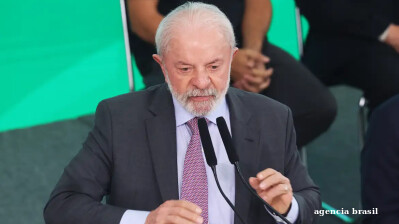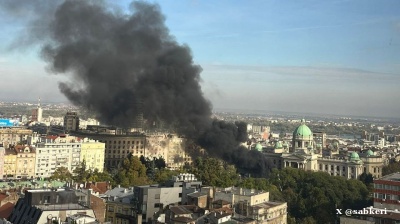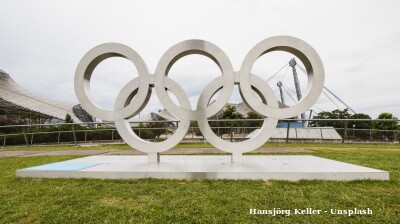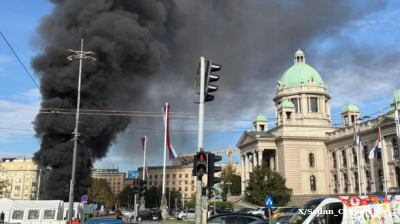Serbian president accuses EU of backing “colour revolution” after European Parliament adopts harsh new resolution

The European Parliament adopted a sharply worded resolution on October 22 criticising Serbian President Aleksandar Vucic’s government, prompting an angry response from Belgrade, where Vucic accused the EU of supporting a “colour revolution”.
The resolution passed with 457 votes in favour and 103 against, marking the strongest rebuke yet from Brussels towards Serbia in over a decade of EU candidacy. It comes nearly a year after the deadly collapse of a renovated train station canopy in Novi Sad that killed 16 people and ignited a nationwide protest movement.
Lawmakers in the European Parliament cited “deep concerns” over human rights violations, restrictions on press freedom and the alleged deployment of crowd-control weapons, including the reported use of a long-range acoustic device—commonly referred to as a “sound cannon”—against peaceful protesters on March 15.
“The Serbian leadership is politically responsible for the escalation of repression, the normalisation of violence and the weakening of democratic institutions,” the resolution claimed, calling for targeted EU sanctions and a potential suspension of Serbia’s trade privileges with the bloc.
It also urged a freeze on Serbia’s accession talks unless Belgrade aligns its foreign policy with EU positions, particularly regarding sanctions on Russia.
Protest movement turns violent
What began as a wave of peaceful student-led protests over the Novi Sad tragedy has, over nearly a year, evolved into a broader anti-government movement calling for accountability, early elections and an end to corruption.
Tensions escalated in August when clashes between protesters and police turned violent. Demonstrators across the country vandalised offices of the ruling Serbian Progressive Party (SNS), while the opposition condemned an excessive police response.
The resolution expressed alarm at these developments, accusing the government of using state-aligned media to smear dissenters, undermining judicial independence and enabling “pro-government disinformation campaigns.”
Particular concern was raised over claims that individuals with criminal records were mobilised by the SNS to confront protesters and suppress opposition gatherings.
Vucic dismisses EU resolution as “politically charged”
In Belgrade, President Vucic dismissed the resolution as “expected and logical” given what he described as an attempt to instigate a “colour revolution” — a term widely used by Russian officials to describe Western-backed uprisings.
“They condemned the use of a sound cannon that didn’t even exist,” Vucic said during a televised address. “They don’t mind 25,000 criminal gatherings or dozens of occupied faculties. They are bothered by one park [referring to a pro-government encampment in the capital’s Pioneerski park]. That tells you everything about the political nature of this resolution.”
Vucic accused the European Parliament of selectively ignoring disruptions caused by protesters, who have blocked streets, occupied university buildings and staged sit-ins in front of key government institutions.
The term “colour revolution” has gained traction among Vucic’s allies in recent months. Serbian officials have echoed narratives suggesting foreign orchestration of unrest, despite the grassroots nature of much of the mobilisation.
EU-Serbia relations at a crossroads
Serbia has held EU candidate status since 2012 but has made little progress in recent years amid concerns over democratic erosion and growing ties with Russia and China.
While the EU has traditionally viewed Vucic as a stabilising force in the Balkans, the tone in Brussels has hardened. The resolution calls for a genuine domestic dialogue on student demands, early elections and stricter oversight of security forces.
The document also raised flags over recent reports that government officials sought to influence independent media, including United Media — parent company of broadcaster N1. If confirmed, MEPs warned this would constitute a “serious attack” on already fragile media pluralism in Serbia.
Nonetheless, Vucic remains a key interlocutor for Western powers, particularly on issues like Kosovo, regional stability and strategic resources. Serbia holds one of Europe’s largest untapped lithium reserves, and Vucic’s government has chosen an Anglo-Australian company, Rio Tinto, to open the mine—an arrangement seen by critics as an attempt to curry favour with EU stakeholders despite domestic opposition.
As Serbia nears one year of unrest, the European Parliament’s resolution signals a shift in Brussels' approach, with growing willingness to tie political reform to concrete incentives or penalties.
Whether Vucic’s government engages with protest leaders or continues to dismiss external criticism as foreign interference may determine the trajectory of Serbia’s stalled EU path, or put the final nail in the coffin.
News

Switzerland reopens Baghdad embassy after 30-year closure
Switzerland reopened its Baghdad embassy after 30 years, with Iraqi and Swiss foreign ministers officiating ceremony reflecting confidence in Iraq's stability and signalling expanded economic cooperation.

Brazil's Lula announces fourth presidential run at 80
Brazilian President Luiz Inácio Lula da Silva has announced he will seek re-election in October 2026, confirming his candidacy during a state visit to Indonesia on October 23.

Serbian president blames opposition for “terrorist attack” outside parliament
President Vucic blamed opposition groups for what he described as a “terrorist act” outside the National Assembly in Belgrade, after a 70-year-old man opened fire on a camp of government supporters and set fire to one of their tents.

IOC sanctions Indonesia over Israel visa ban
The International Olympic Committee has announced that international sports federations will be advised not to hold competitions or meetings in Indonesia after the country barred Israeli athletes from entering.


